Mini budget 2022: new Chancellor Jeremy Hunt U-turns explained - which tax cuts have changed?
and live on Freeview channel 276
The UK’s political scene has been something of a rollercoaster ride recently, and there’s no sign things will be calming down anytime soon.
New Chancellor of the Exchequer Jeremy Hunt, who has replaced Kwasi Kwarteng after his sacking on Friday (14 October), has announced he will be reversing “almost all” of the tax cuts originally announced in the government’s controversial mini budget. The changes include having the basic rate of income tax remain at 20p “indefinitely” and ending universal energy bills support sooner than initially planned.
Advertisement
Hide AdAdvertisement
Hide AdHunt said today (17 October): “[We have] today decided to make further changes to the mini budget, and to reduce unhelpful speculation about what they are, we’ve decided to announce these ahead of the Medium Term Fiscal Plan, which happens in two weeks (31 October).” In response to the news, the pound rose and government borrowing costs fell.
It comes just days after Prime Minister Liz Truss addressed the nation in a very brief press conference at Number 10 Downing Street and confirmed a widely-speculated U-turn on corporation tax, following intense pressure to change her mini budget after weeks of economic turmoil. During this time, the pound hit record lows, mortgage rates rose, and the Bank of England actioned an extraordinary bailout of pension funds. Tory MPs started to turn on Truss - urging their leader to further backtrack on her “unfunded” tax cuts and even discussing the prospect of ousting her.
With things changing by the day then, NationalWorld has outlined exactly where things stand. So, what was announced in the 23 September mini budget, and what U-turns have been announced by the government since then?
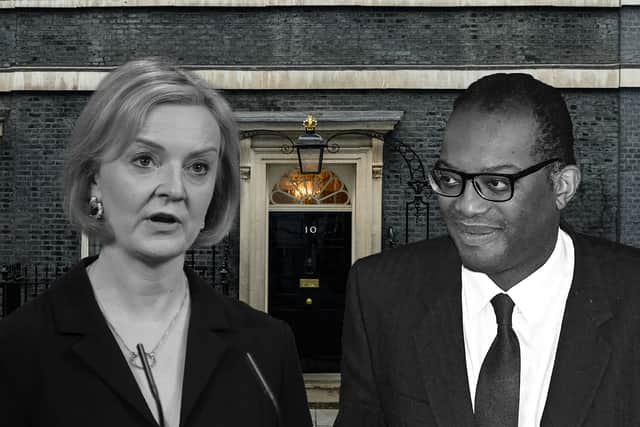

Corporation tax - U-turn
What was initially said: When outlining the mini budget, Kwarteng announced that the planned increase in corporation tax on big business profits, which in April 2023 was due to rise from 19% to 25%, has been scrapped.
Advertisement
Hide AdAdvertisement
Hide AdWhat has changed:Truss confirmed during the press conference at Downing Street on Friday (14 October) that this change has been dropped. UK corporation tax will rise from 19% to 25% in April, as previously organised by ex-Chancellor Rishi Sunak.
Top rate income tax - U-turn
What was initially said: Kwarteng announced the abolishment of the top rate of income tax, meaning those on more than £150,000 a year would no longer pay 45% tax but instead the lower 40% paid by those on over £50,271.
What has changed: After widespread criticism about the change benefiting workers on the highest salaries, something many deemed unfair given the fact that the cost of living crisis has disproportionately affected those on lower incomes, the government announced a U-turn. Before his sacking, Kwarteng announced that the scrapping of the 45% rate would not go ahead, writing in a statement on Twitter: “we get it, and we have listened.”
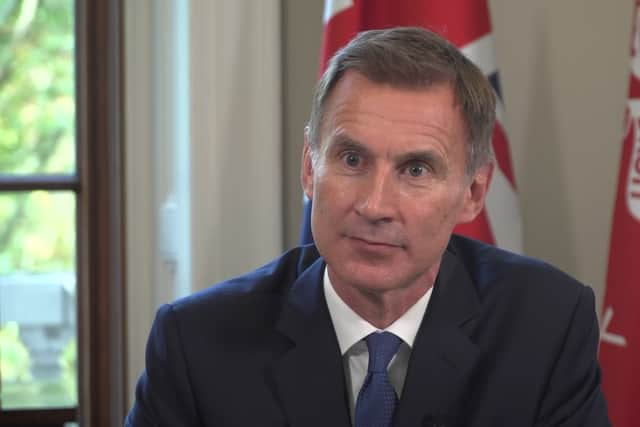

Basic income tax - U-Turn
What was initially said: According to the mini budget, the planned cuts to the basic rate of income tax have been brought forward by a year. This meant income tax would reduce to 19p in every £1 in April 2023, with estimates from the Treasury reporting this would give 31 million people £170 more a year.
Advertisement
Hide AdAdvertisement
Hide AdWhat has changed: Hunt announced today (17 October) that the basic rate of income tax will remain at 20p “indefinitely” - instead of being reduced to 19p. He said this will be the case until the UK’s finances improve.
Duty rises - U-turn
What was initially said: The mini budget revealed that visitors from overseas will soon enjoy VAT-free shopping, with Kwarteng also confirming that planned increases in duties on beer, cider, wine and spirits would be cancelled.
What has changed: The government will “no longer be proceeding with the new VAT-free shopping scheme for non-UK visitors or the freeze on alcohol duty rates”.
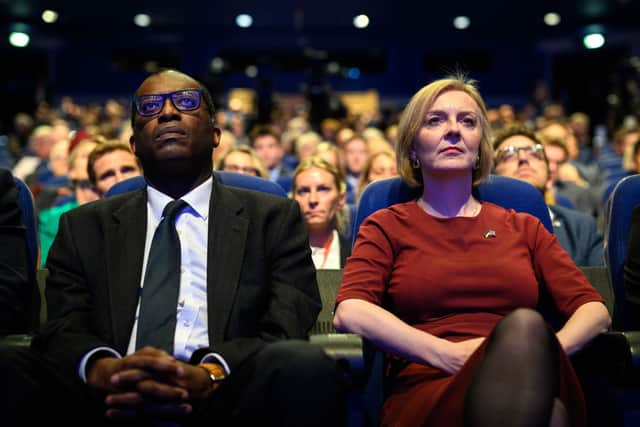

Energy bills cap - slight change
What was initially said: Prime Minister Truss previously announced that the energy price cap will be frozen at £2,500 a year for a typical home, stopping it from rising to £3,549 in October and to around £5,000 in January. The plan was set to last for two years from 1 October 2022, reportedly saving the average household £1,000 a year amidst the spirally cost of living crisis.
Advertisement
Hide AdAdvertisement
Hide AdWhat has changed: Chancellor Hunt has said the price cap will now only be universal until April 2023. After this point, it will be more targeted following a review on how to best support people with their energy bills.
National insurance - no change
What was initially said: The increase to national insurance, which has seen workers’ contributions rise by 1.25 percentage points since April, will be reversed on 6 November. In practical terms, this means 28 million workers will have more money in their pockets - on average, an extra £330 a year in take-home pay.
When the increase was first introduced by former Chancellor Sunak, it was to function as a levy to increase contributions to the NHS.
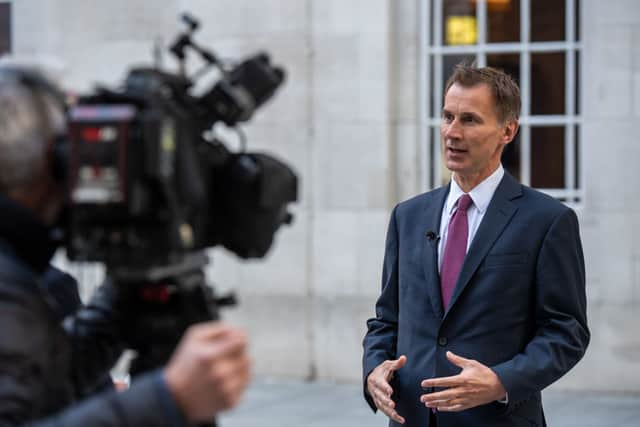

Stamp duty - no change
What was initially said: In its 23 September mini budget, the government reduced the amount of tax people pay when buying property or land in England and Northern Ireland. This means buyers no longer have to pay stamp duty on the first £250,000 of a property (up from £125,000), and first time buyers no longer have to pay on the first £425,000 of a property (up from £300,000).
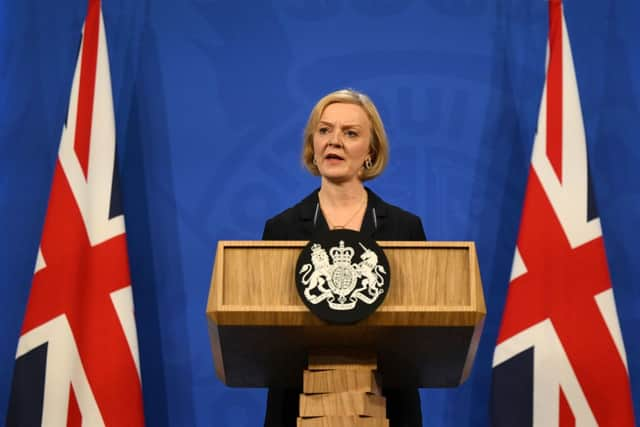

Bankers’ bonuses - no change
Advertisement
Hide AdAdvertisement
Hide AdWhat was initially said: In controversial move, Kwarteng also confirmed plans to scrap the cap on bankers’ bonuses. The cap previously limited how much extra money bankers could earn. Hunt confirmed that the government will go ahead with ditching the cap in the House of Commons today (17 October). Shadow Chancellor Rachel Reeves hit out at the decision, saying: “What a contrast, that cuts to benefits are still on the table, but the one thing the Chancellor couldn’t bring himself to reverse today was lifting the cap on bankers’ bonuses. Why is this the last policy standing in this disastrous mini budget?”
Benefits - no change yet
What was initially said: On September 23, Kwarteng said rules for those receiving Universal Credit would be harsher. He said that people must be fulfilling job search commitments, such as taking active steps to get more or better paid work, or risk having their benefits reduced. The former Chancellor also announced that jobseekers over 50 will be given extra time with work coaches to help them return to the job market.
Comment Guidelines
National World encourages reader discussion on our stories. User feedback, insights and back-and-forth exchanges add a rich layer of context to reporting. Please review our Community Guidelines before commenting.
